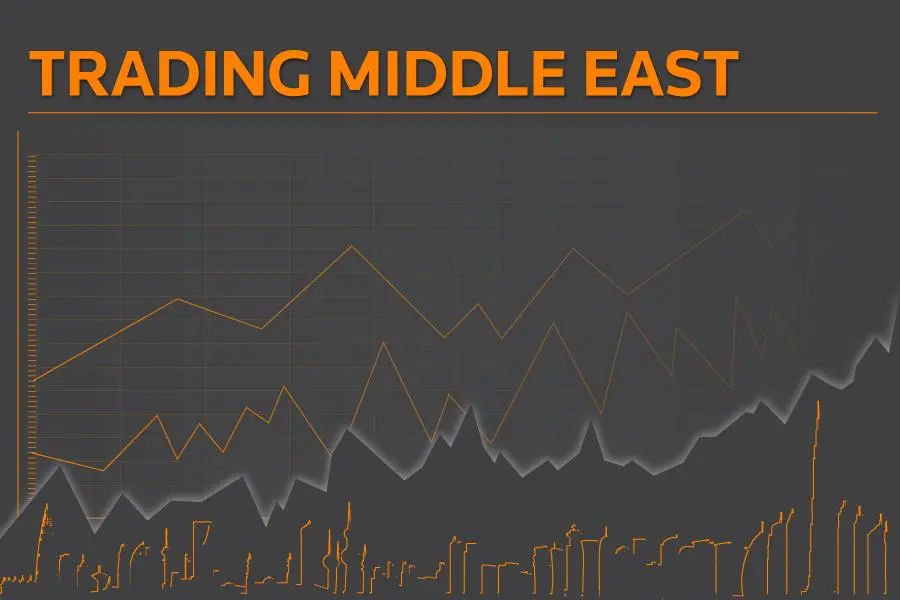PHOTO
Global markets started the week lower on Monday tracking losses on Wall Street from Friday’s session, as trade war fears surged after United States President Donald Trump signed a presidential memorandum on Thursday that could impose tariffs on up to $60 billion of imports from China.
MSCI’s broadest index of Asia-Pacific shares outside Japan slipped for a fourth consecutive day, dropping 0.2 percent on Monday. The index is headed for its first quarterly decline since late 2016.
In the Middle East, stock markets were mixed on Sunday.
Abu Dhabi’s index was the best performer among its peers in the region, rising 0.8 percent as Dana Gas jumped 8.3 percent on news of plans for its first annual dividend for several years, after its board said it would seek shareholder approval for a cash dividend for 2017 totalling 5 percent of capital, or about 349 million dirhams ($95 million).
Dubai’s index dropped 1.1 percent, as Emaar Properties dropped 2.7 percent to a 21-month closing low of 5.73 dirhams.
The index in Saudi Arabia was almost unchanged, edging up 0.02 percent.
Saudi Basic Industries gained 0.9 percent, as the stock is expected to figure prominently in FTSE’s emerging market indexes.
Another favourite of foreign investors, Al Rahji Bank, rose 0.7 percent while Samba Financial Group strengthened 1.3 percent.
The index in Qatar dropped 0.8 percent, pulled down by a 3 percent decline for Qatar First Bank, the most heavily traded stock.
Egypt’s blue-chip index lost 0.5 percent, Bahrain’s index edged up 0.1 percent, Kuwait’s index was down 0.5 percent and Oman’s index edged up 0.03 percent.
In commodities, oil prices were also trading lower, tracking a drop in global markets.
U.S. West Texas Intermediate (WTI) crude futures were at $65.51 a barrel at 0255 GMT, down 37 cents, or 0.6 percent, from their previous close.
Brent crude futures were at $70.24 per barrel, down 21 cents, or 0.3 percent.
In currencies, the dollar slipped to a 16-month low against the Japanese yen on Monday following Trump's signing of the memorandum on Chinese imports on Thursday, which made investors turn to the Japanese yen, a currency likely to benefit from the trade war.
“It really is typical ‘risk off’ trades dominating right now, with the yen and Swiss franc the big beneficiaries. But more speculators are jumping in, and any reversals could be sudden and violent,” Yukio Ishizuki, senior currency strategist at Daiwa Securities, told Reuters.
Gold prices surged to a to a five-week high on Monday as the threat of a global trade war sent investors to demand more safe havens.
Spot gold rose 0.1 percent to $1,348.66 per ounce at 0419 GMT. Price rose to as much as $1,350.76 per ounce, the highest since February 19.
“Last week, gold prices gained nearly 2.7 percent and rallied from 1315 levels to 1351 levels ending on an 8 week high. These gain came on worries over a potential trade war between the United States and China driving safe-haven demand,” Century Financial Brokers said in their weekly market report.
“The coming week is expected to be positive for gold, as there is little chance the uncertainties regarding tariffs will dissipate. Moreover, there has been high sell off in the global markets which will further trigger safe haven demand,” the report added.
In other news, Egypt’s Planning Minister Hala al-Saeed said on Sunday that Egypt's gross domestic product grew by 5.3 percent in the quarter ending in December 2017 and its unemployment rate fell to 11.3 percent, the lowest rate since 2011.
For access to market moving insight, subscribe to the Trading Middle East newsletter by clicking here
Our Standards: The Thomson Reuters Trust Principles
Disclaimer: This article is provided for informational purposes only. The content does not provide tax, legal or investment advice or opinion regarding the suitability, value or profitability of any particular security, portfolio or investment strategy. Read our full disclaimer policy here.
© ZAWYA 2018




















